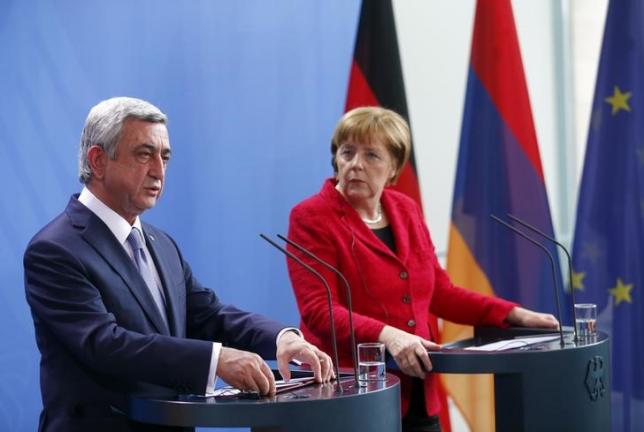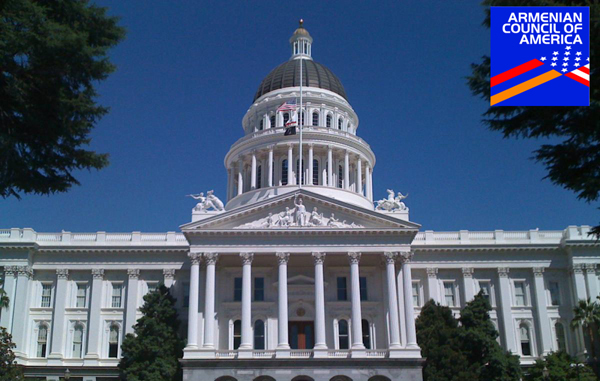BERLIN — President Serzh Sarkisian has urged German lawmakers not to be cowed by Turkish President Tayyip Erdogan’s warnings of damage to Berlin-Ankara relations and to go ahead with a motion declaring 1915 mass killing of Armenians by Ottoman Turks as genocide.
The opposition Greens have pushed the resolution onto the agenda and German lawmakers are expected to approve the resolution on Thursday that labels the killings of up to 1.5 million Armenians Genocide. It follows similar steps pressed in other parliaments, including France, Canada and Germany.
“I am sure the politicians in the Bundestag see it the same way and will not allow themselves to be intimidated,” President Sarkisian told German mass-selling daily Bild in an interview published on Wednesday.
“If one makes compromises for short-term political interests, then one ends up doing so again and again. And that is bad for Germany, that is bad for Europe and the world.”
“It’s not fair that you cannot call the genocide of the Armenians genocide just because the head of state of another country is angry about it,” Sarkisian concluded.
Erdogan said at a televised news conference on Tuesday that the German parliamentary resolution would damage ties between Ankara and Berlin.
Sarkisian told Bild that Germany should not count on “a partner like Turkey” in solving Europe’s ongoing refugee crisis. “It is evident that a possible failure of the migrant agreement would have nothing to do with the passage of the resolution on the Armenian genocide,” he said.
Sarkisian said Erdogan should not be trusted by the European Union not least because he was instrumental in the collapse of the 2009 Turkish-Armenian agreements to normalize bilateral relations.
The resolution, which is formally supported by Merkel’s conservative bloc, the center-left Social Democrats and the Greens, uses the word “genocide” in the headline and text.
“The fate of the Armenians is exemplary in the history of mass exterminations, ethnic cleansing, deportations and yes, genocide, which marked the 20th century in such a terrible way,” it reads.
It also notes that Germany, as an ally of the Ottoman Empire during World War I, “bears partial responsibility for the events.”










